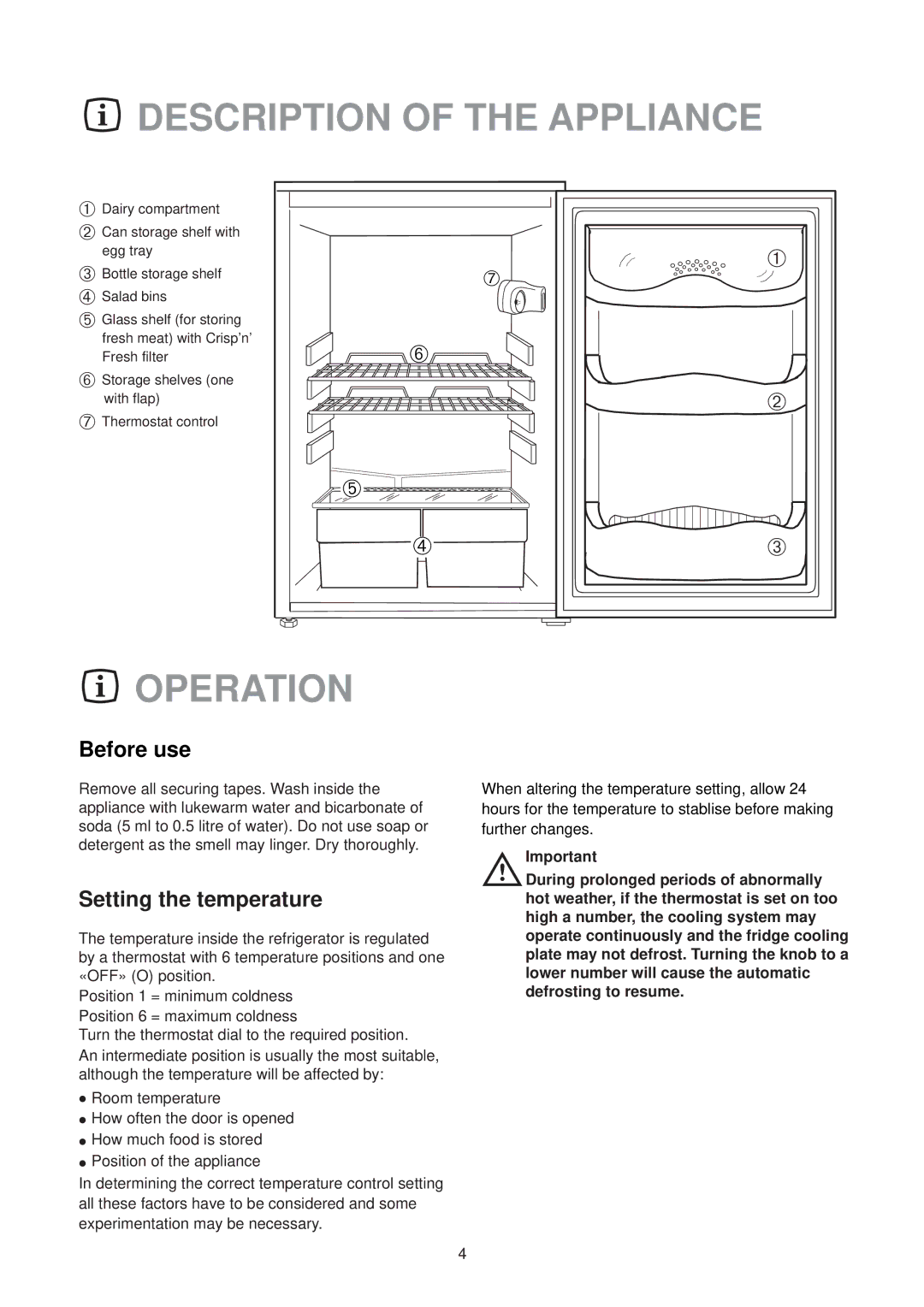
 DESCRIPTION OF THE APPLIANCE
DESCRIPTION OF THE APPLIANCE
➀ Dairy compartment |
|
|
➁ Can storage shelf with |
|
|
egg tray |
| ➀ |
➂ Bottle storage shelf |
| |
| ➆ | |
➃ Salad bins |
|
|
➄ Glass shelf (for storing |
|
|
fresh meat) with Crisp’n’ | ➅ |
|
Fresh filter |
| |
➅ Storage shelves (one |
| ➁ |
with flap) |
| |
➆ Thermostat control |
|
|
| ➄ |
|
| ➃ | ➂ |
 OPERATION
OPERATION
Before use
Remove all securing tapes. Wash inside the appliance with lukewarm water and bicarbonate of soda (5 ml to 0.5 litre of water). Do not use soap or detergent as the smell may linger. Dry thoroughly.
Setting the temperature
The temperature inside the refrigerator is regulated by a thermostat with 6 temperature positions and one «OFF» (O) position.
Position 1 = minimum coldness Position 6 = maximum coldness
Turn the thermostat dial to the required position.
An intermediate position is usually the most suitable, although the temperature will be affected by:
•Room temperature
•How often the door is opened
•How much food is stored
•Position of the appliance
In determining the correct temperature control setting all these factors have to be considered and some experimentation may be necessary.
When altering the temperature setting, allow 24 hours for the temperature to stablise before making further changes.
Important
During prolonged periods of abnormally hot weather, if the thermostat is set on too high a number, the cooling system may operate continuously and the fridge cooling plate may not defrost. Turning the knob to a lower number will cause the automatic defrosting to resume.
4
